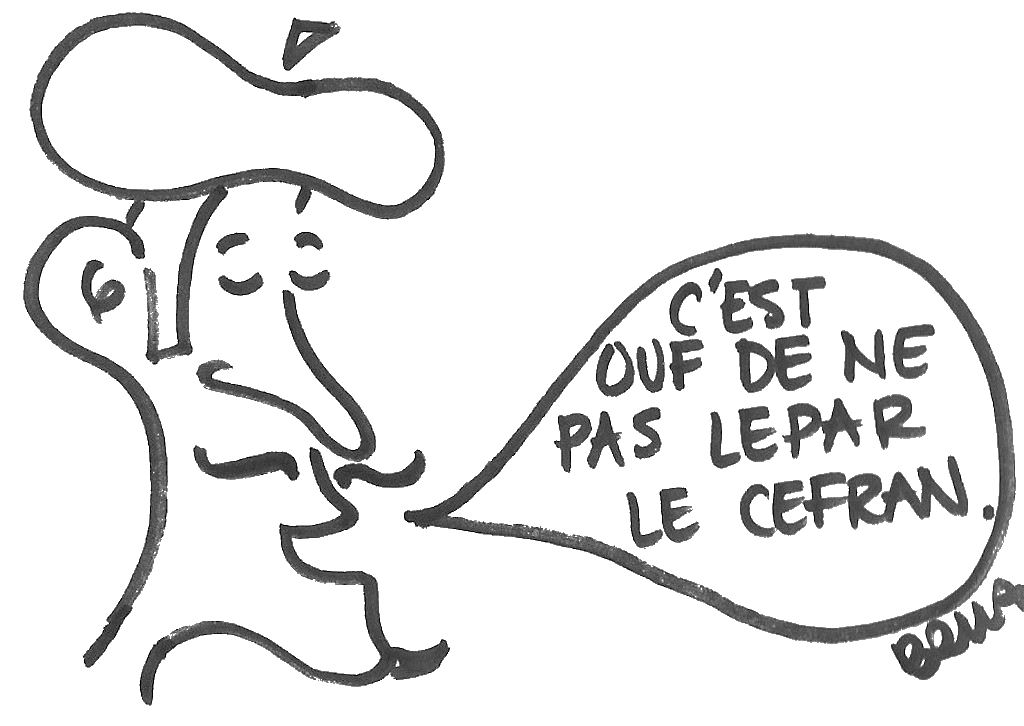Slang

“Verlan”, French words spelled backwards.
Verlan
First type of slang that you might come across is verlan (à l’envers), which are French words spelled backwards, and often incorrectly, in slang. And while this concept might seem a bit intimidating at first, you will find that you pick it up in no time at all and probably without even realizing.
“Meuf”
Our first example is meuf, which was originally femme. And, as with the word femme, this term can be used to refer to a female, or your girlfriend, although it can have pejorative connotations.
“Relou”
Our second example is relou, the verlan for lourd (heavy or taxing) and equivalent of chiant, which means annoying/exasperating.
“Ouf”
Ouf is the French backwards of fou (crazy/awesome).
Here ouf can work as either an adjective, without the de, or as a noun, with the ’d’. It’s up to you! We did something crazy awesome yesterday.
“Être vénère”
And finally, our last slang word for today is another way of expressing that you are annoyed or angry; être vénère, which is the verlan of être énervé.
Note: It is important here to pay attention to your accents because vénéré means to be revered.
Other slang words
“Bordel”
Bordel literally means brothel. However, these days bordel is more commonly used to describe a large mess.
“Balle”
Balle as a singular, literally means bullet. Yet back in the day, balles was used as a slang word for francs, the French currency pre-2002. And when France moved on to the euro, balles moved with it and it is still sometimes used in reference to money.
“Baraque”
The word baraque literally means shanty, or small house made of planks. However, recently the term has been adapted to refer to a house, or, as an adjective baraqué, someone who is really muscular.
“Blé
Blé literally translates as wheat in English. However, figuratively it has become a popular way of referring to money. (Another common way of referring to money in slang terms is fric or pognon).
“Bobo”
Bobo is actually baby talk for une blessure (an injury). However, you will find that young people commonly use this term when referring to minor injuries such as cuts and bruises.
Bobo refers also to Bourgeois Bohème literally “hipster” in English.
“Bouffer”
Bouffer literally means to puff up or balloon in size. However, it has become common practice to replace the word manger (to eat) with bouffer in everyday speech. And in turn, la bouffe is then used as another word for food.
“Une clope”
A commonly used slang word, especially in Paris, is the argot for cigarette, une clope.
“Kiffer”
Another term used by today’s generation, which you may not already know is the word kiffer, which is slang for to like something (it works best with a hobby!). However, pay attention, if you kiffe quelqu’un, it implies that you desire that person.
“Mec”
The word mec is yet another commonly used slang term, and refers to boyfriends as well as guys in general.